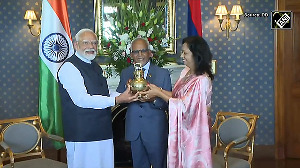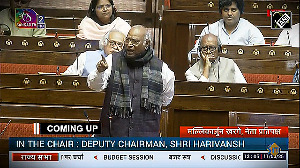
Inflation is a bane of our lives. Inadvertently or consciously, a vast majority among us toils just to beat the inflation. But many an occasion, our savings are very insubstantial to bring us solace. In such difficult state of affairs, where we spend more and save less, a cash back credit card is a smart way of saving on indispensable expenditures.
On the occasion of World Savings Day, we look at cash back credit cards and how they help you in your battle against inflation.
Cash back credit cards are a type of credit card that offers discounts on your bills. It works like any other credit card with the distinct advantage of securing discounts and cash back on some indispensable bills.
For example, some banks offer cash back credit cards that give 5 per cent cash back on utility bills paid. By using such a card if you pay your mobile bill of say Rs 1000, the card issuing banks clearly mentions a discount of 5 per cent or Rs 50 in the statement and you have to pay your bank Rs 950 only.
Here you get a credit as long as the bill cycle permits and besides this, there are absolute savings to the tune of 5 per cent.
You also enjoy such discounts on various utility bills such as fuel, grocery, malls and also food bills at restaurants.
If a cardholder spends on an item that does not attract any cash back, s/he is entitled to receive some points, which later can be redeemed in kind, like any other reward programme offer.
For the convenience of the user, banks simply categorise expenditures. The value spends such as utility bills, fuel bills typically fall in one segment, whereas the lifestyle spends at 'wine & dine' restaurants and malls are put into another segment.
Separate credit cards are offered for each of these segments. That makes life simpler for many individuals.
You just have to identify your needs and accordingly choose your credit cards. If your utility bills comprise big chunk of your total monthly spending, you may choose cards offering discounts on utility bills.
But if you enjoy the 'wine & dine' moments more frequently you can look at cards that offer you a discount on bills at high-end restaurants.
These facts look very tempting. However, there are certain essential facts you should know before you apply for one such card. Before signing an application form, you need to know the 'cash back' terms and conditions well.
Most cards offering utility bill discounts restrict it to a monthly limit say Rs 100 or Rs 250 per month.
Cards offering discounts at high-end restaurants too have such limits in place.
Another important fact is not all utility bills may qualify for a discount and not all restaurants maybe a part of the cash back programme of the bank. So, you need to know the details of discounts offered by banks beforehand. Many banks issuing such cards do not charge joining fees but may charge yearly fee. Hence, you also need to know the charges too.
Besides this, it is not easy to get such cards. You need to have a credit history in place. After you choose the credit card of your choice, the bank’s decision to give you a cash back credit card would rest only on your CIBIL credit score and proper income proof.
Understandably, a person with a good credit repaying history stands a better chance of getting such cards. Even after you get your credit card, always pay your outstanding amount before the due date. This would help in building a good credit score.
Hence, availing of a cash back credit card can be one of the efficient ways of saving money. Such customised ways of serving the varied and small expenditures works well for us in the long-term.
Just like our older generation, you should realise that a penny saved now would come in handy when you need a penny.
Illustration: Uttam Ghosh/Rediff.com
The author, Director & Co-founder of Creditvidya.com, is a credit expert with 10 years of experience in personal finance and consumer banking industry and another 7 years in credit bureau sector. Rajiv was instrumental in setting up India's first credit bureau, Credit Information Bureau (India) Limited (CIBIL). He has also worked with Citibank, Canara Bank, HDFC Bank, IDBI Bank and Experian in various capacities.












 © 2025
© 2025